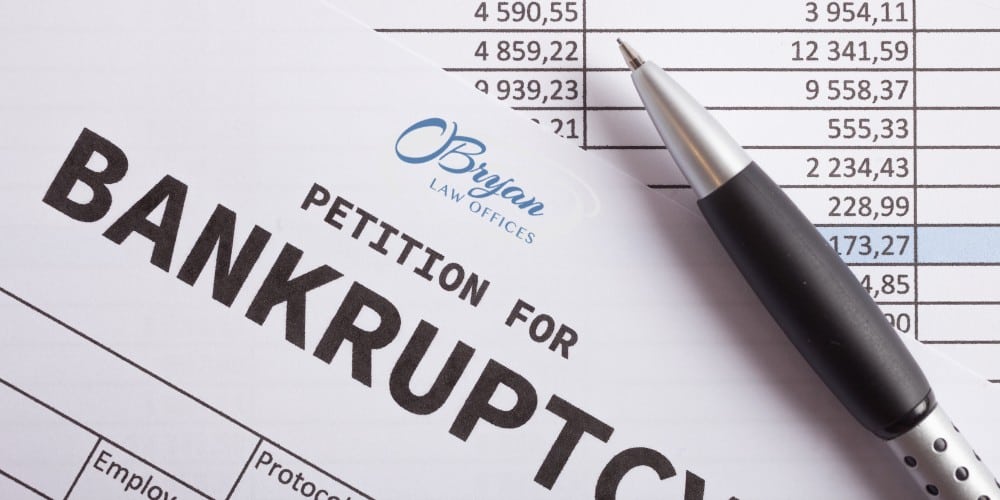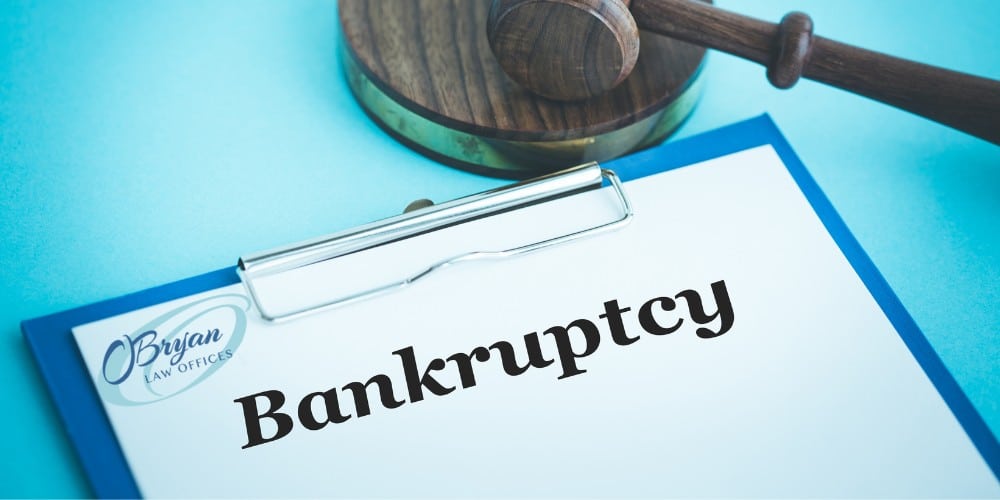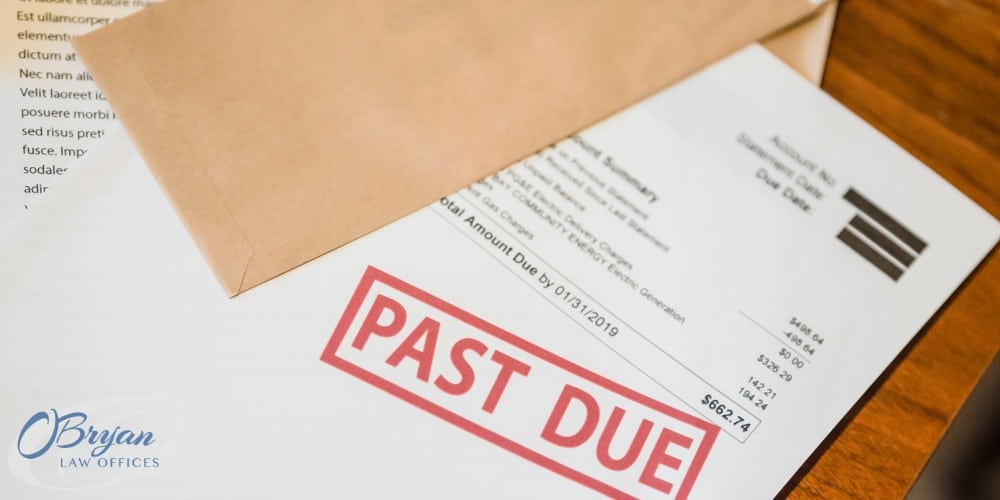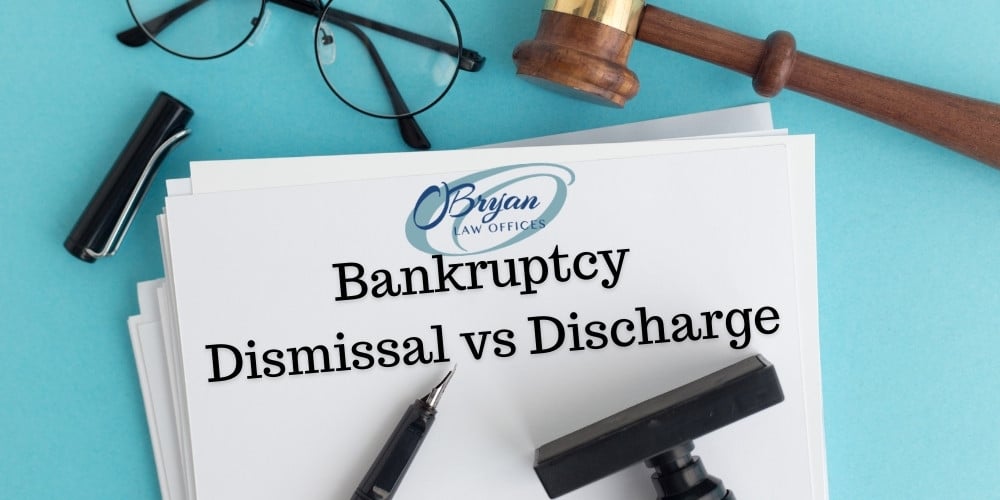Bankruptcy is an effective way to get a fresh start and get out of crippling debt, but why does it get such a bad rap? Many people are under the impression that bankruptcy should be avoided at all costs. The truth is that we all experience financial hardships. A Bankruptcy can help you in these difficult times when your creditors are unwilling to work with you and help. Filing a Bankruptcy save your home from being foreclosed, help you get current on missed mortgage or car payments and it provides legal protection from harassing creditors who may be garnishing your wages or bank account.
The Bankruptcy Code can be complex, especially for someone unfamiliar with the bankruptcy process. Being familiar with the outcomes of bankruptcy court can help you become a little more knowledgeable about the process. At O’Bryan Law Offices, our bankruptcy lawyers want you to be able to make informed decisions in your bankruptcy case. This is why we’re going to explain the difference between a bankruptcy dismissal and a bankruptcy discharge. These terms may sound similar, but they couldn’t be more different. Read on below to learn more about bankruptcy dismissal vs discharge. If you’re ready to begin filing for bankruptcy, call the O’Bryan Law Offices today at (502) 400-4020. Schedule a free consultation with a bankruptcy lawyer at no financial risk to you!
Bankruptcy Outcomes in Bankruptcy Court

Your bankruptcy case can have two general outcomes: dismissal or discharge. A discharge is the most positive outcome in the bankruptcy system. This means your debts are discharged, which means you no longer have a legal obligation to pay them. A dismissal isn’t often the intended outcome, but it can be beneficial to your case depending on your financial situation. Bankruptcy law has many regulations and requirements. Any deviation from these rules can result in a negative outcome in your case, but that doesn’t mean all hope is lost. No matter your situation, the qualified bankruptcy attorneys at O’Bryan Law Offices can help you explore your options.
What Is Bankruptcy Dismissal?

A bankruptcy dismissal can happen when some part of the Bankruptcy Code hasn’t been followed. A dismissal is not the ideal outcome, but that doesn’t mean it’s all bad. It may be in your best interest to dismiss the case and refile it at a later date. If you want to stop the bankruptcy process for any reason, you can ask for a voluntary dismissal. When the case is dismissed by the bankruptcy court, this is called an involuntary dismissal. Dismissal can be granted with or without prejudice, and this can affect how quickly you can refile your case. A bankruptcy court can dismiss your case if:
- You provide dishonest or incorrect information to your bankruptcy attorney
- You didn’t complete necessary credit counseling and debt counseling
- You stopped paying child support or alimony
- You didn’t attend the 341 meeting of creditors
- Paperwork is missing
- The court filing fee hasn’t been paid
In many cases, you can fix these errors and refile. Working with a skilled bankruptcy attorney can prevent many of these clerical errors and save you time and money.
What Is a Dismissal With Prejudice?
Bankruptcy courts can choose to dismiss a bankruptcy case with prejudice or without prejudice. When the court decides to dismiss a bankruptcy case, it’s usually because of incorrect paperwork or failure to meet all the requirements. Most of these cases are dismissed without prejudice. Dismissing a case without prejudice means you can refile as soon as you fix the errors in your case. A dismissal with prejudice, on the other hand, often has more rules.
A case dismissed with prejudice often means the bankruptcy court suspects some kind of dishonesty or fraud. Taking out credit cards or loans right before filing bankruptcy can be seen as very dishonest to a bankruptcy court, because this kind of debt is often discharged during bankruptcy. If the bankruptcy court dismisses your case with prejudice, you can be barred from filing bankruptcy again for a short period of time. This can range anywhere from 90 days to a year. During this time, you lose the protection of an automatic stay, so creditors can resume harassing you for debts you owe. A dismissal with prejudice can also limit the types of debt you can discharge when you file again.
Voluntary Dismissal
Some people may ask the court for a voluntary dismissal in their bankruptcy case. Depending on the type of bankruptcy you file, it may be beneficial to your situation to ask for a dismissal. The dismissal process for a Chapter 13 bankruptcy case is a little different than one for a Chapter 7 case, so we outlined the differences below.
Chapter 13 Voluntary Dismissal
A Chapter 13 voluntary dismissal can actually benefit you and your family. Chapter 13 bankruptcy cases often last for three to five years, or however long your repayment period is. A lot can change about your financial situation during this time. An unexpected illness or sudden job loss can result in you not being able to make your monthly payments. Dismissing your Chapter 13 case and refiling can restart your three to five year payment plan and reduce your monthly payments.
Chapter 7 Voluntary Dismissal
A Chapter 7 voluntary dismissal is often much more difficult. Most Chapter 7 bankruptcy cases are resolved in a matter of months, so there isn’t much room for dismissing the case. In most cases, a court will not grant a request for a Chapter 7 bankruptcy dismissal once the case has been filed.
How Long Do I Have To Wait to Refile After Dismissal?
Refiling bankruptcy after a dismissal depends on the type of dismissal the court grants. A dismissal without prejudice can mean you can refile as soon as you have the paperwork in order. A dismissal with prejudice often means you have to wait a certain period of time before you can refile. This time frame can be anywhere between 90 days and a year. During this time, you lose the protection of an automatic stay, which means creditors can begin repossessing your car and your home. This is why it’s important to be honest with your bankruptcy attorney and meet all the requirements of bankruptcy law.
What Is Bankruptcy Discharge?

Bankruptcy discharge is usually the intended outcome of a bankruptcy filing. When the court discharges your debts, it means you no longer have to pay the debts. Bankruptcy protection via discharge means that debtors and creditors cannot ask for repayment of the debts.
Chapter 7 Bankruptcy Discharge
During Chapter 7 bankruptcy, a bankruptcy trustee appointed by the court will gather up your non-exempt assets and sell them to pay your creditors. Any debt leftover after this is discharged. The first debts paid are secured debts, like mortgages and auto loans. Unsecured debts, like medical bills and credit card debt, can be discharged through Chapter 7 bankruptcy.
Chapter 13 Bankruptcy Discharge
During Chapter 13 bankruptcy, you and a court-appointed bankruptcy trustee will make a repayment plan for repaying your creditors. This repayment plan lasts between three and five years and can only take a portion of your income. Any debt left over at the end of this period is discharged. Chapter 13 bankruptcy allows people to pay only a portion of their debt.
Call an Experienced Bankruptcy Attorney at O’Bryan Law Offices Today
Going through this legal process alone can be confusing, to say the least. Bankruptcy is an effective option for debt relief, but many people believe too many of the myths surrounding bankruptcy.
The experienced bankruptcy attorneys at O’Bryan Law Offices have helped thousands of families get a fresh start by filing bankruptcy. We know how overwhelming and stressful this process can be. That’s why we help you through every step of the process and meet all the requirements of bankruptcy court. To learn more about our legal services and how we are different, call us today at (502) 400-4020 to schedule a free, no-obligation consultation.







